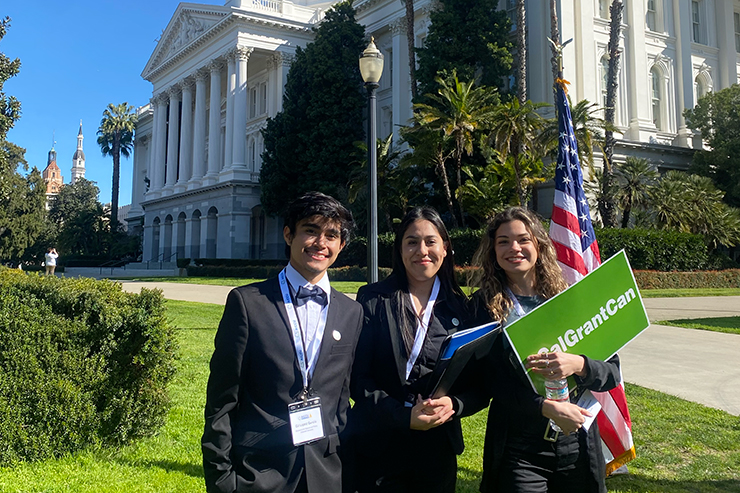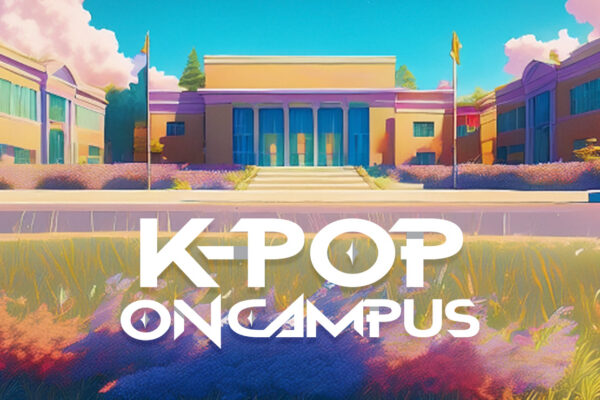When Gil Lopez was applying to colleges, Chapman University was low on his list of choices – but only because he didn’t think a private university was an affordable option.
“Considering my parents are immigrants from Mexico, I thought that with no connections and no overall economic incentive to send me to college, I was going to a Cal State or a UC,” he said.
Now, as a first-year Chapman University student studying environmental science and policy, he’s advocating to protect programs that make it possible for others just like him to attend Chapman in the future.
Gil Lopez ’27 is one of three Chapman students participating in this year’s Independent California Colleges Advocate Program (ICCAP), a six-month internship program that trains and develops student leaders, sponsored by the Association of Independent California Colleges and Universities (AICCU). Participants learn about state and federal government structures and public policymaking processes, and have the opportunity to interact directly with policymakers during a “Day at the Capitol” event in Sacramento, Calif.
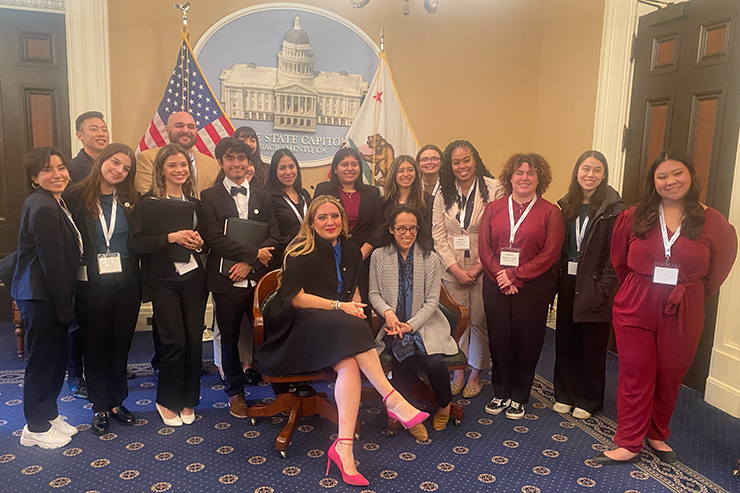
“What we were doing there was asking for continued or further support for Cal-Grant funding,” said Katelyn Pohlman ’26, a sociology major. “Since 2001, UCs have received a 200% increase in Cal Grant funding support, whereas support for private institutions in California has decreased by 2%. So we were just bringing facts to life and telling our stories of why Cal Grant and Pell Grant are important to us and why it’s absolutely necessary to pay attention to this in this year’s budget.”
Advocating for private institutions in California is important, Pohlman said, because without them, many low income or minority students wouldn’t have the opportunity to attend private institutions that offer unique benefits such as smaller class sizes and a personal connection with professors.
Making Student Voices Heard
During their visit to the capitol, the students met with Assemblymember Avelino Valencia, who represents District 68, including Anaheim, Santa Ana and Orange.
“As a young voter, as well as a student and a person who is passionate about what I’m advocating for, it was very humanizing to see how receptive and attentive he was to what we were saying,” said Pohlman. “He shared a little bit of his background as well, his higher education journey. He understands where we’re coming from. He said, ‘I’m going to do what I can,’ because obviously there’s some things that are out of his hands … But I felt like we got our point across and walked out of the room feeling very, very nervous, but it was still very rewarding.”
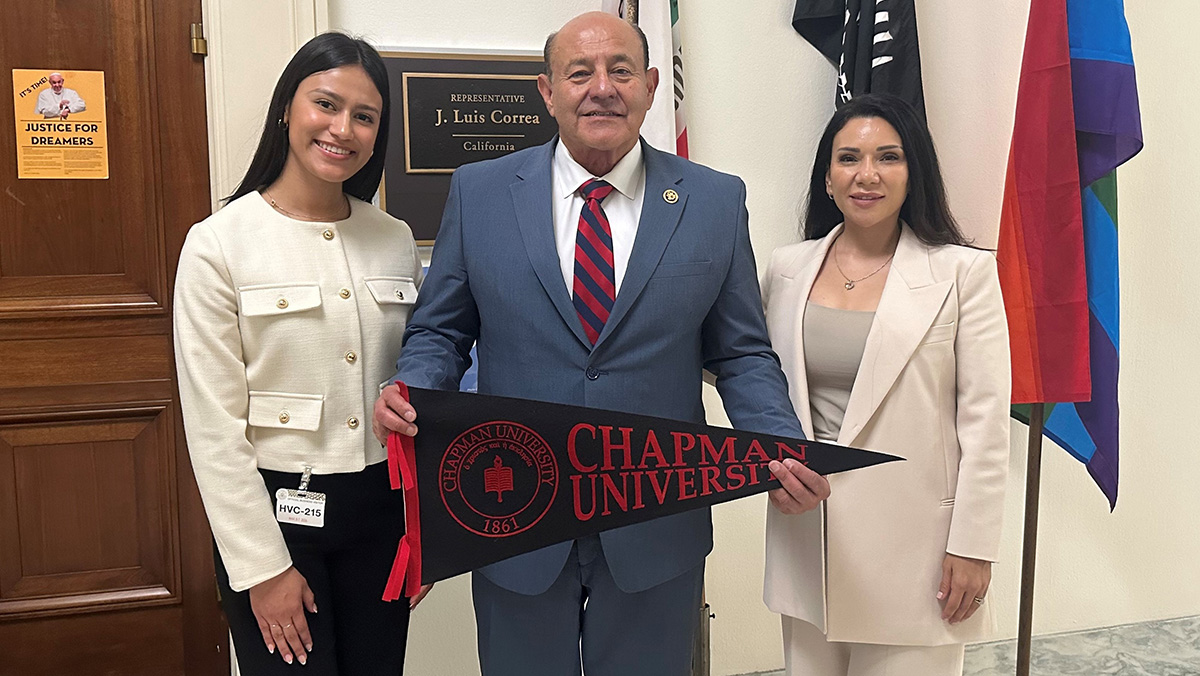
“I learned that my voice does matter,” said Jasmine Lopez ’24, a political science major. “I do a lot of protests and try other ways to get my voice out there. A lot of the time I feel like it’s not being heard. But through ICCAP, it was a one-on-one situation. We got to speak with these assemblymembers … and we got a lot of what we called home runs, when the assemblymembers were able to champion what we were fighting for.”
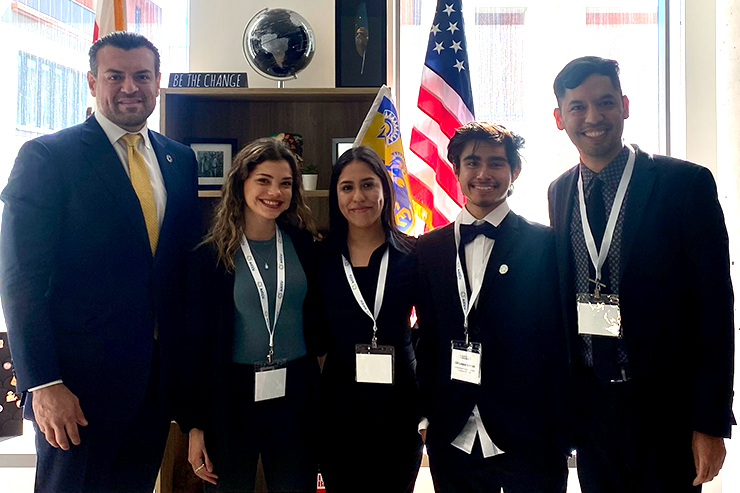
After his meeting with the Chapman students, Valencia said, “Having the opportunity to meet inspiring students is always uplifting. Their drive and enthusiasm to get civically involved and make a difference exemplifies tomorrow’s leaders in action.”
Each of the student participants said that the entire experience has been life changing.
“It’s been very exciting getting to talk to people from other private institutions, from USC, from Laverne, from Pepperdine, and getting to meet legislators has been the most memorable moment of my life,” said Gil Lopez. “Having my opinions and my voice heard feels very empowering and it feels very validating.”
Jasmine Lopez, who will graduate this spring, used to see herself as a lawyer.
“Now I kind of see myself going up and living in Sacramento, or maybe Washington, D.C., and being a policymaker,” she said.
Pohlman hopes she can continue working with AICCU and is looking for a summer job or internship with local government officials.
“I’m very grateful for the opportunity that I had because it really reframes how I think about government policy and, more specifically, policymaking decisions,” she said. “There are a lot of things that go into making those decisions that we don’t see. That’s not to say that there aren’t a lot of flaws in our government, but it was nice to see that we do have a voice. They are listening to us.”
Applications for the 2024-2025 cohort will open fall semester. Interested students should reach out to Jonathan Charres, assistant director of diversity and outreach in Undergraduate Financial Aid and institution lead for ICCAP.
